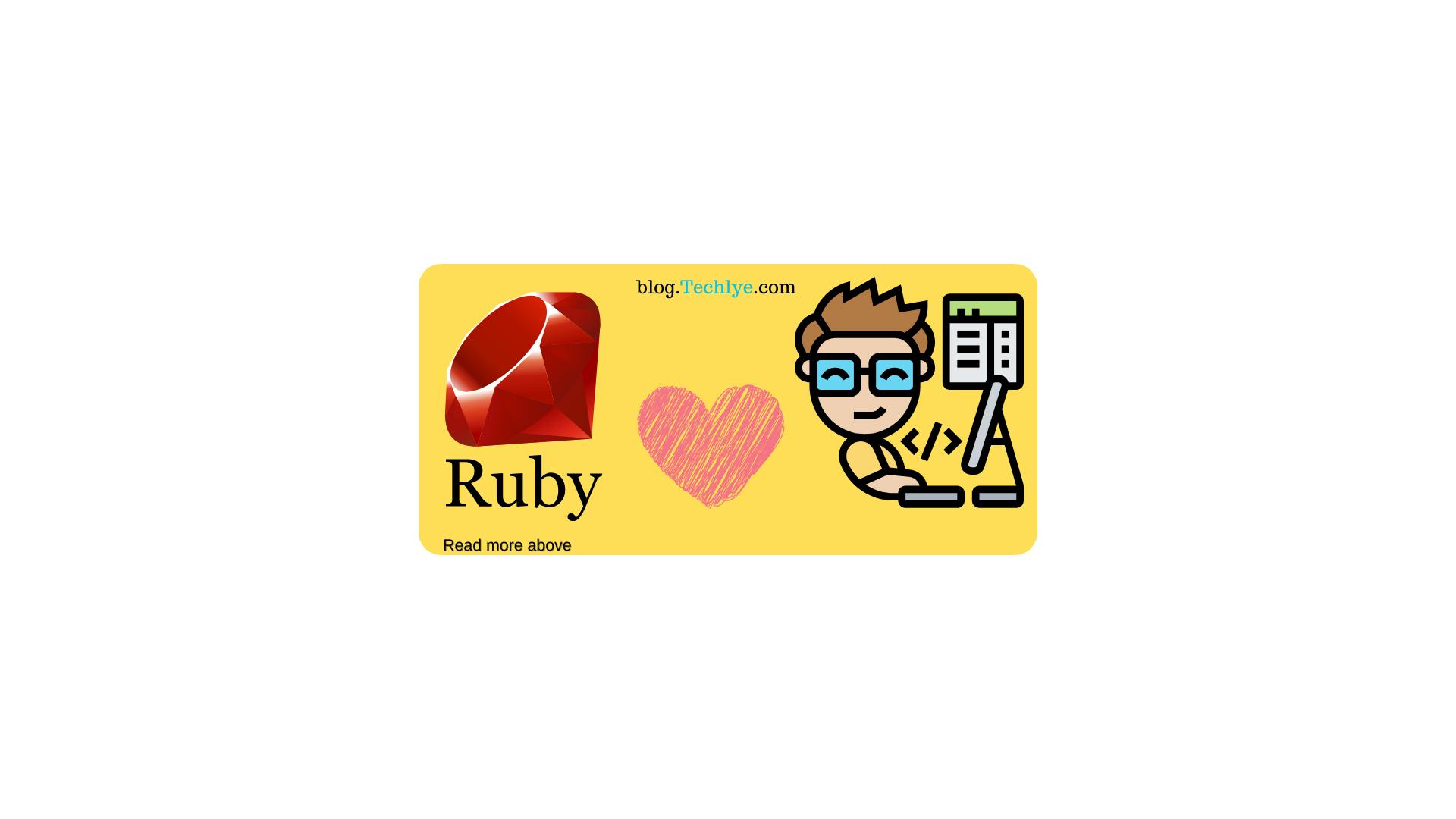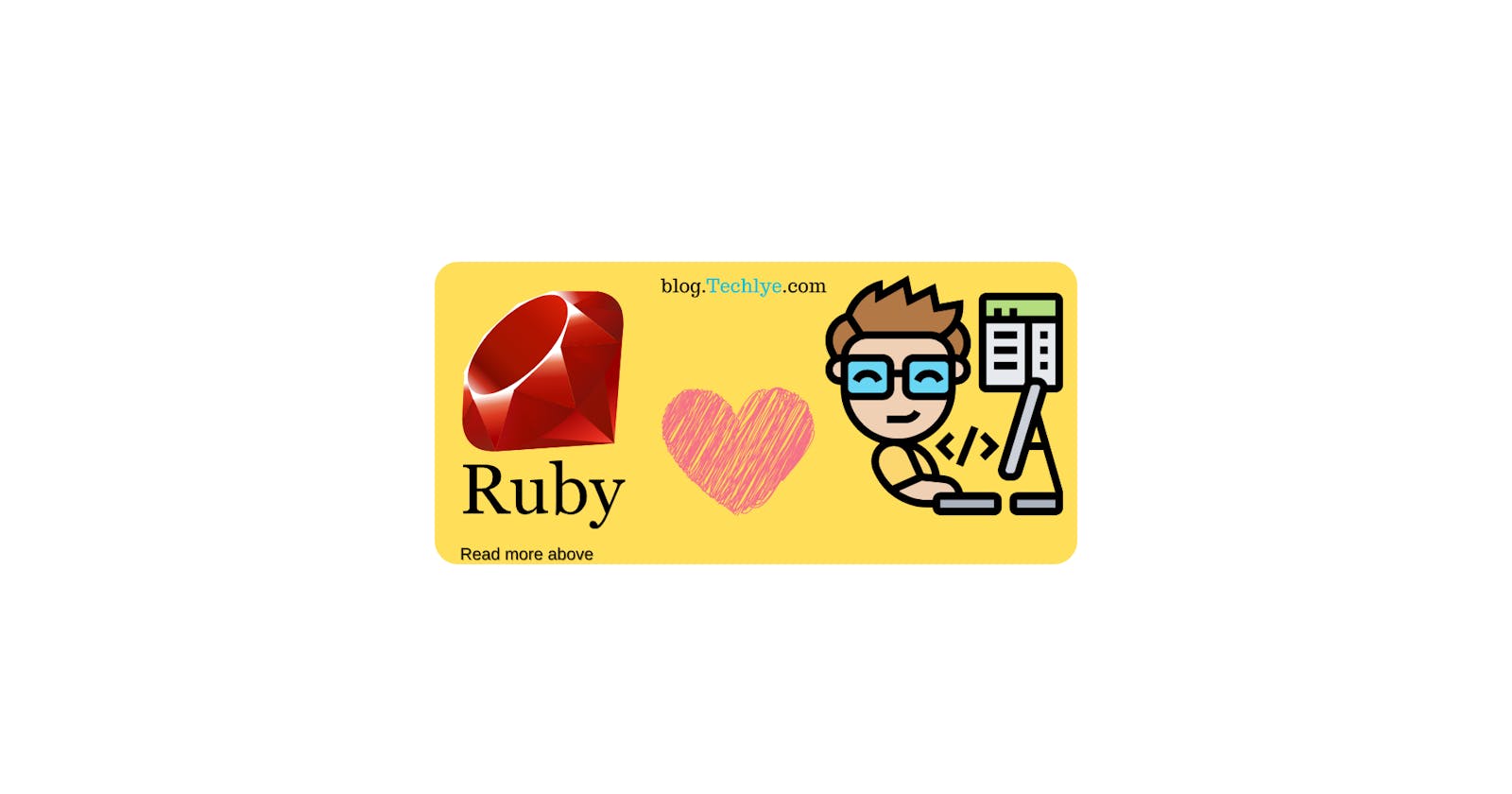My Affair with Simplicity and Creativity

Hey there, fellow coders! Today, I want to share my love story with a programming language that has stolen my heart: Ruby. Buckle up for a journey through the simplicity, creativity, and pure joy that is Ruby coding!
1. Simplicity in Syntax
Ruby's simplicity shines in its syntax. Unlike many languages, Ruby doesn't require explicit imports or verbose class references. Instead, just the class name suffices, leading to a seamless and intuitive coding experience:
# No fuss with explicit imports in Ruby!
Order = Order.new
# Just the class name, that's all you need
today = Order.new(item:"bag",price:123)
JavaScript, on the other hand, involves explicit import statements to access classes from other files:
// JavaScript requires those import statements
// Declare and import the class from another file
import { Order } from './Order.js';
const obj = new Order(); // Only then can you use the imported class
2. Everything is an Object
Ruby's object-oriented nature makes everything an object! This empowers us to manipulate objects directly, simplifying code and fostering a natural, object-centric approach to problem-solving:
# Objects, objects everywhere in Ruby!
str = "Hello, Ruby!"
puts str.upcase
puts str.length
3. Power in Conciseness
Ruby welcomes extensive methods, enabling clean, cohesive code structures:
# Embrace those lengthy methods in Ruby
class Calculator
def perform_complex_calculation(x, y, z)
# ... many lines of complex calculations ...
result = x * y + z - (x ** 2)
result / y
end
end
4. Freedom in Syntax
Ruby gives us the freedom to write code that flows like poetry. Whether it's the classic if, else, and end dance or the snazzy true if logic—express yourself freely:
# Ruby's freedom of expression
age = 25
if age >= 18
puts "You are an adult."
else
puts "You are a minor."
end
# Hey, look at this concise version!
puts "You are an adult." if age >= 18
5. Liberation in Creativity
In Ruby, creativity thrives. The language encourages diverse coding styles, such as functional paradigms or elegant object-oriented design:
# Getting creative in Ruby
class String
def to_alphanumeric
gsub(/[^\w\s]/, '')
end
end
str = "Ruby rocks!#"
puts str.to_alphanumeric # Output: "Ruby rocks"
6. Community and Tooling
Wait, we're not alone in this Ruby love fest! Gems, frameworks like Ruby on Rails, and a bunch of helpful folks—Ruby's got a whole community cheering us on.
# Joining the Ruby community
# First things first, install the gem: gem install twitter
require 'twitter'
# Time to interact with the Twitter gem
# Set up your Twitter credentials
# (Don't worry, they're your secrets!)
client = Twitter::REST::Client.new do |config|
config.consumer_key = 'YOUR_CONSUMER_KEY'
config.consumer_secret = 'YOUR_CONSUMER_SECRET'
config.access_token = 'YOUR_ACCESS_TOKEN'
config.access_token_secret = 'YOUR_ACCESS_SECRET'
end
# And now, tweet your heart out with Ruby!
client.update("I love coding in Ruby! #RubyProgramming")
In Conclusion
Ruby isn't just a programming language; it's an invitation to express yourself in code. Its simplicity, object-centric approach, flexibility, and the support it offers empower developers to craft elegant solutions.
So here's to Ruby: a language that not only empowers us to write code but also celebrates the joy of coding itself.
Keep shining, keep coding, and keep falling in love with Ruby! ❤️✨
